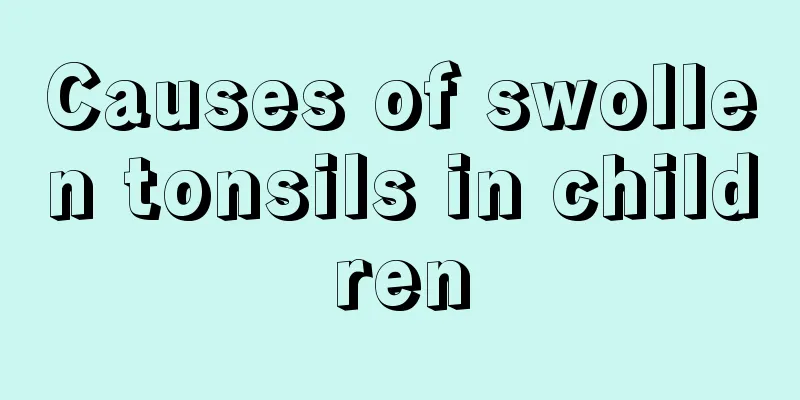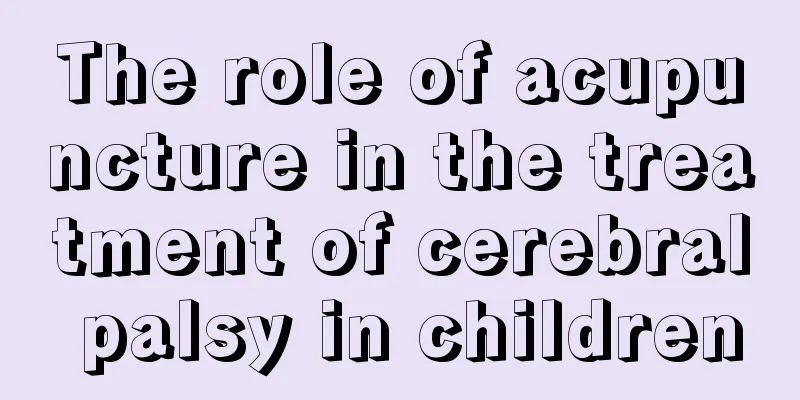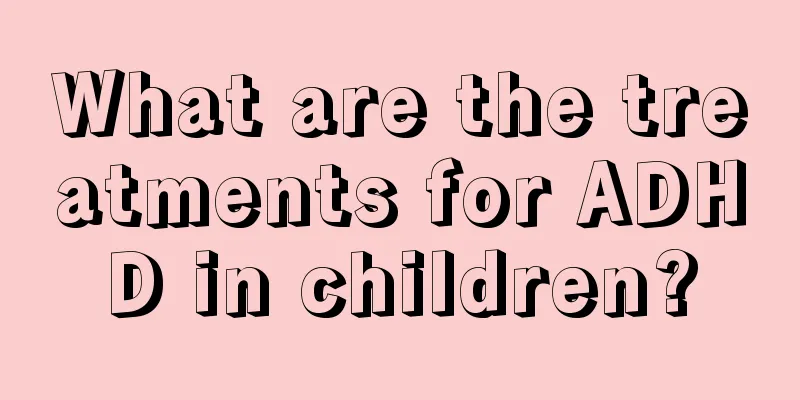Child foaming at the mouth while sleeping

|
Many parents will find that their children foam at the mouth when they sleep. If the child is young, foaming at the mouth is a normal phenomenon. Because the child's physical development is not yet complete, the salivary glands are not yet mature, and the swallowing ability is relatively poor, it is easy for them to foam at the mouth when they sleep. Parents don't need to be too nervous at this time.
Case 1 The baby's salivary glands are immature and the saliva secretion is small, but it will gradually increase later. With the secretion of saliva, the baby's oral movements become more and more frequent, such as sticking out the tongue, blowing bubbles and drooling. These are normal physiological phenomena and will disappear on their own as the baby grows older and his swallowing function improves. Case 2 Another reason is the pathological phenomenon caused by pneumonia in children. When infants suffer from pneumonia, respiratory symptoms are often atypical. Foam at the mouth is only one of the manifestations of pneumonia in infants. In addition to this, they may also refuse milk, choke on milk, and generally be in poor condition. If this is the case, you should go to the hospital in time to avoid delays. Symptoms of pneumonia in children 1. General symptoms: There is often an upper respiratory tract infection for several days before the onset of the disease, and the body temperature can reach 38-40℃. Most of them are remittent or irregular fever. Infants often have a slow onset and a low fever. Other manifestations may include refusal to eat, vomiting, and choking on milk.
Most cases have an acute onset, with fever, cough, and shortness of breath as the main symptoms. fever: Children suffering from pneumonia usually have fever symptoms, with body temperature above 38°C, which lasts for two or three days. Antipyretics can only temporarily lower the body temperature for a while, but it will rise again soon. But at the same time, we should also be wary of pneumonia in children without fever. Babies with pneumonia may have a very high temperature, but they may also not have a fever, or even have a temperature lower than normal. Coughing and breathing: These children often have an acute onset of illness, first with "cold" symptoms, which last for about 3 days, with a low fever (measured body temperature around 38°C), clear nasal discharge, and cough. About 60% of the children may not have a fever. After 2-3 days, the cough worsens, and the breathing becomes rapid and shallow. Chest: Because children's chest walls are thin, bubbling sounds can sometimes be heard without a stethoscope, so careful parents can listen to their children's chest when they are quiet or asleep. 3. Circulatory system: Mild hypoxia can cause an increased heart rate, and severe pneumonia can be complicated by myocarditis and heart failure.
Mild hypoxia manifests as irritability and drowsiness; cerebral edema causes impaired consciousness, convulsions, irregular breathing, bulging anterior fontanelle, and sometimes signs of meningeal irritation, and pupils become slow or absent in their response to light. Mental state: In order to detect pneumonia in children in time, careful mothers should also pay attention to their children's mental state. If the child is in a poor mental state, has blue lips, is irritable, crying or drowsy, or has convulsions, and a few children may experience delirium, then it means the child is more seriously ill and is more likely to have pneumonia. 5. Digestive system: Mild cases often include poor appetite, vomiting, diarrhea, abdominal distension, etc.; severe cases can cause toxic intestinal paralysis, disappearance of bowel sounds, and worsening of breathing difficulties when abdominal distension is severe. Gastrointestinal bleeding may cause vomiting of coffee-like substance, positive occult blood in the stool, or tarry stool. |
>>: The child suddenly foams at the mouth
Recommend
What medicine should children take for sneezing and runny nose
It is very normal for children to sneeze and have...
Neonatal stool occult blood positive
In our lives, it is very common for newborns to h...
Introduction to spinal massage for children
The purpose of pinching the baby's spine is t...
What to do if your newborn baby has jaundice
Jaundice is a common disease among newborns. The ...
What medicine should children take for acute laryngitis
In our lives, there are many children whose physi...
How to treat a 17 month old child’s fever?
Nowadays, any topic about baby's illness will...
What to do if your baby has conjunctivitis
It is said that eyes are the windows to the soul....
The main symptoms of zinc deficiency in babies
We all know that children are in the stage of phy...
Is it okay for children to take growth hormone?
The human body needs growth hormone to grow. Some...
What causes black gums in children?
It is the happiest thing for parents that every c...
What to do if your child coughs and spits yellow phlegm
When children cough and have a lot of phlegm, the...
What to do if your child has dry and flaky mouth
It is very common for children to have dry and fl...
How to prevent tooth loss in nine-year-old children
Children will lose their teeth during childhood, ...
Is herpes virus contagious in children?
Children's physical resistance is relatively ...
What's wrong with a newborn baby making pig-like snorting sounds?
During the growth period of newborns, many parent...









